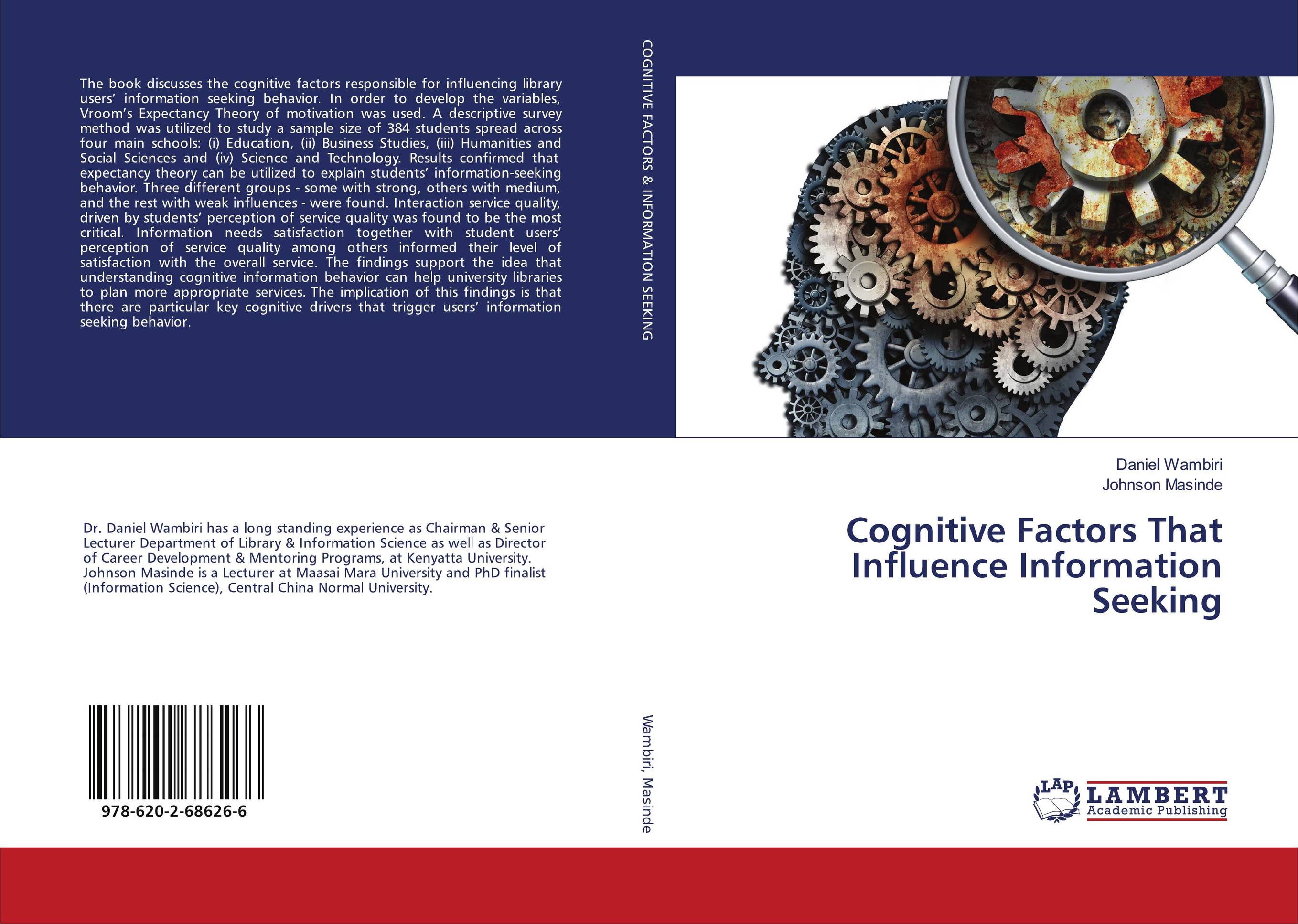| Поиск по каталогу |
|
(строгое соответствие)
|
- Профессиональная
- Научно-популярная
- Художественная
- Публицистика
- Детская
- Искусство
- Хобби, семья, дом
- Спорт
- Путеводители
- Блокноты, тетради, открытки
Cognitive Factors That Influence Information Seeking.

В наличии
| Местонахождение: Алматы | Состояние экземпляра: новый |

Бумажная
версия
версия
Автор: Daniel Wambiri and Johnson Masinde
ISBN: 9786202686266
Год издания: 2020
Формат книги: 60×90/16 (145×215 мм)
Количество страниц: 216
Издательство: LAP LAMBERT Academic Publishing
Цена: 46658 тг
Положить в корзину
| Способы доставки в город Алматы * комплектация (срок до отгрузки) не более 2 рабочих дней |
| Самовывоз из города Алматы (пункты самовывоза партнёра CDEK) |
| Курьерская доставка CDEK из города Москва |
| Доставка Почтой России из города Москва |
Аннотация: The book discusses the cognitive factors responsible for influencing library users’ information seeking behavior. In order to develop the variables, Vroom’s Expectancy Theory of motivation was used. A descriptive survey method was utilized to study a sample size of 384 students spread across four main schools: (i) Education, (ii) Business Studies, (iii) Humanities and Social Sciences and (iv) Science and Technology. Results confirmed that expectancy theory can be utilized to explain students’ information-seeking behavior. Three different groups - some with strong, others with medium, and the rest with weak influences - were found. Interaction service quality, driven by students’ perception of service quality was found to be the most critical. Information needs satisfaction together with student users’ perception of service quality among others informed their level of satisfaction with the overall service. The findings support the idea that understanding cognitive information behavior can help university libraries to plan more appropriate services. The implication of this findings is that there are particular key cognitive drivers that trigger users’ information seeking behavior.
Ключевые слова: Cognitive factors, User past experience, Gender, information seeking, Academic Libraries, expectancy theory, motivation, Post graduate students



